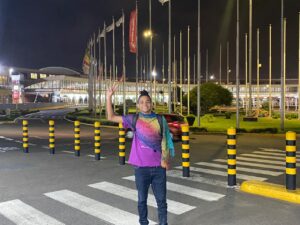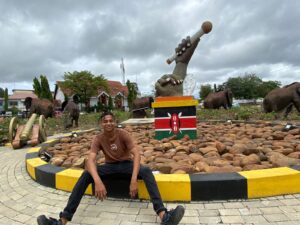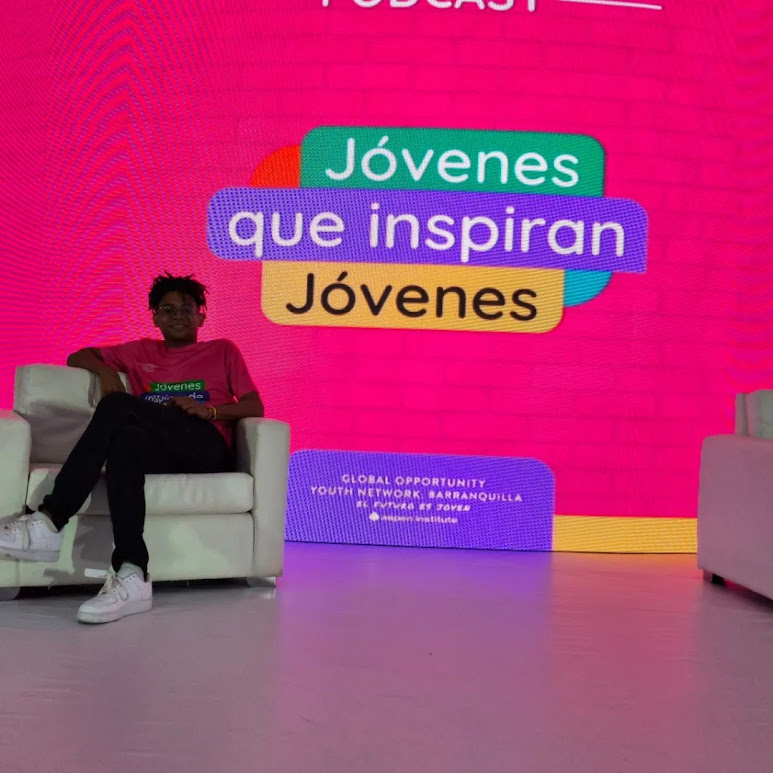By Randy Marquez
GOYN ALUNIM
Being young and wanting to change the world isn't a new idea. But being young, having power, and using it to disrupt, transform, and create collective dignity... That has been and continues to be revolutionary.
When I think about authentic leadership, when I look for role models who not only imagined another world, but also dared to build it against all odds, one name inevitably comes to mind: Thomas Sankara.
It wasn't perfect. It wasn't eternal. But it was necessary.
And his legacy remains a brutal and beautiful mirror for those of us who, like me, believe that youth leadership is not a matter of age, but of courage, vision, and consistency.
Sankara and the courage to start without permission
Thomas Sankara didn't ask permission to be different. He came to power in Burkina Faso in 1983, at the age of 33, and the first thing he understood was that no real change would come from outside. Change had to come from within: from the people, from the youth, from the local level.
Does this sound familiar?
Today, many young leaders and innovators are tired of empty rhetoric. We don't want to be "the future" because we are the present, and the future is now.
Sankara was. In four years, he accomplished what many envy:
He launched the largest literacy campaign in his country's history.
- He advocated for food self-sufficiency and local production.
- He redefined economics with ethics and creativity.
- He showed that power could also be humble.
The revolution of the possible
Sankara understood something key: youth leadership is not about repeating what already exists, but about creating what has never been attempted.
While others were asking for loans from international organizations, he asked his people to grow their own food.
While others were increasing ministers' salaries, he was selling official cars and getting around by bicycle or motorcycle.
While others talked about development, he practiced it.
Why is Sankara still uncomfortable?
Because it embodies exactly what the global system fails to handle: young people with ideas, convictions, and the capacity for real action.
Their legacy isn't in statues. It's in the neighborhoods that grow their food today. In the collectives that create circular economies. In the entrepreneurs who understand that to lead is to serve. In the projects that connect technology with humanity. In the young leaders who provoke discomfort by proposing a future with dignity.
Communicate, collaborate and connect: because revolutions are also counted

And leadership isn't just about doing. It's also about how we tell what we do.
Because ideas that aren't shared remain isolated. Struggles that aren't named fade away. And communities that aren't counted risk being forgotten.
Today we have something that didn't exist before: technology at our fingertips. But the challenge isn't using it better, it's using it purposefully.
It's not about having more followers. It's about having more real connections. It's not about doing things to show off. It's about doing things to inspire, to invite others to do their own thing, to tell their own story, to defend their own.
Collaboration is just that: joining struggles, joining voices, joining dreams.
And communicating with meaning is our small act of daily rebellion.
If someone else was able to sow dignity without the internet, we can do it a thousandfold... if we do it together.
Create from your own, transform from the collective

And when I look at my own experience, my own path, I can't help but think that those ideas—those that speak of creating from within, of transforming from within, of building dignity without asking permission—I also see them alive today in spaces like GOYN.
Because beyond the programs or projects, what truly inspires me about GOYN is its way of being, of accompanying, of believing in youth from what is real, from what is local, from what is possible.
GOYN understands that real change begins in the neighborhood, in the community, on the corner where a group of young people decide to do something different.
And he does so by betting on what, for me, is the key to all of this: listening before speaking, trusting before imposing, building networks before structures.
Because in the end, that's what it's all about.
To create from what we are.
To transform from where we are.
Understanding that the most powerful processes don't come from outside. They come from within.
That's what I see, what I live, and what I want to continue believing.
That the real impact is there: in the ideas that spring from everyday life, in the projects that care for local issues, in the networks that are woven from trust and collective work.
Because the changes that last the longest aren't those that come from afar. They're those we build together, from our own roots and for our own roots.
And that, for me, is the present I want to inhabit.
And the future I want to help create.






